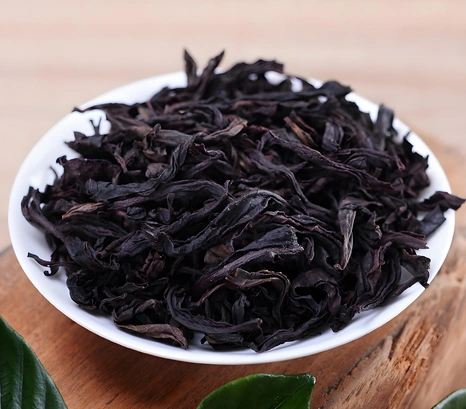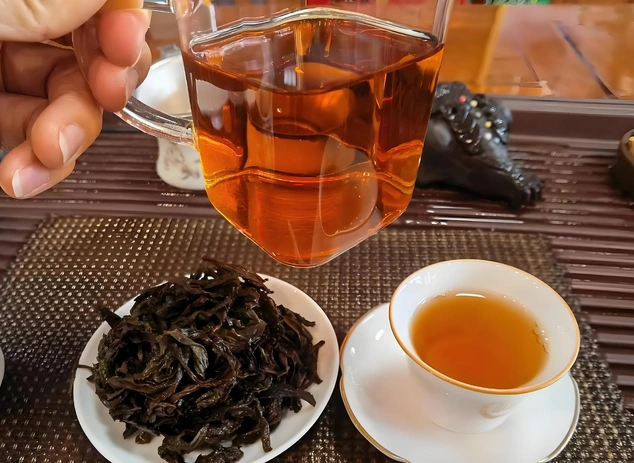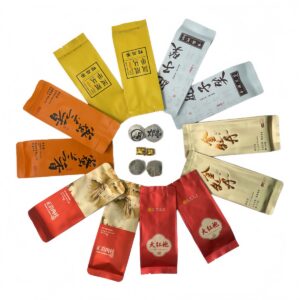Wuyi rock oolong tea summons your senses with an earthy perfume that hints at jagged cliffs, misty peaks, and centuries-old tea gardens clinging to sheer rock faces. From that first swirl of amber liquor in your cup, you taste mineral-rich depth and a gentle roastiness that warms the tongue. Imagine inhaling floral whispers one moment, then lingering charcoal and stone notes the next—a symphony of terroir and tradition.
In this guide, you’ll uncover what makes Wuyi rock oolong tea so irresistibly complex, explore signature varietals like Da Hong Pao oolong tea, learn brewing techniques, and discover its wellness perks alongside fellow Fujian teas such as Anxi Tieguanyin tea and the delights of aged oolong tea. Let’s journey into the heart of China’s cliff-tea culture.
What Is Wuyi Rock Oolong Tea?
Wuyi rock oolong tea, also known as yancha, is grown in the mineral-rich soils of the Wuyi Mountains in Fujian province. “Rock rhyme” or yan yun describes the tea’s unique mineral resonance—a flinty, lingering character that reflects the granite and basalt hillside where the bushes root. Partial oxidation (30–70%) and charcoal roasting amplify this terroir, yielding a tea that is neither green nor black but a beguiling bridge of floral and roasted notes.

Signature Wuyi Rock Varietals
Da Hong Pao Oolong Tea
Legend says only six original mother bushes of Da Hong Pao oolong tea remain, draped in red robes and protected as national treasures. Its liquor is deep amber, with layers of cocoa, orchid, and a smooth, honeyed finish. A single sip evokes ancient cliff-side rituals—a testament to why Da Hong Pao commands tea enthusiasts’ highest reverence.
Shuixian & Rougui
- Shuixian (“Water Sprite”) delivers pronounced floral top notes followed by a brisk mineral undertone.
- Rougui (“Cinnamon Bark”) offers a spicy sweetness, reminiscent of baked apple and nutmeg, complemented by rock-driven depth.
Aged Oolong Tea in Rock Style
Properly stored Wuyi rock oolong tea matures like wine. Aged oolong tea deepens in roast, developing notes of maple syrup, dark toffee, and tobacco on the finish—transforming bright cliff-tea into velvety nectar.
Fujian Oolong Tea vs. Wuyi Rock Oolong Tea
While Fujian oolong tea encompasses many styles—like the creamy Chaotan oolongs of Anxi—Wuyi rock oolongs are defined by their rock-infused “yan yun.” Compared to the brisk, milky charm of Anxi Tieguanyin tea, rock oolongs are brawny, grounded, and endlessly evolving.

Flavor Profile & Brewing Techniques
Tasting Notes
Expect a multi-layered experience:
- First Infusion: Floral orchid and jasmine.
- Mid-Palate: Toasted chestnut, light caramel.
- Finish: Slate-like minerality, lingering charcoal sweetness.
Gongfu-Style Brewing
- Leaf Ratio: 5–8 g per 100 ml water
- Water Temp: 100 °C
- Infusion Times: 10–15 s initial; add 5 s each subsequent up to 8–10 steeps
This method teases out evolving depths, revealing new nuances each brew.
Western-Style Brewing
- Leaf Ratio: 3 g per 250 ml water
- Water Temp: 95–95 °C
- Steep Time: 3–4 minutes
Ideal for a quick, satisfying cup that still carries the hallmark rock-tea character.
🔗 For more tea brewing methods, check out the YouTube video explaining the brewing methods.

Health Benefits of Wuyi Rock Oolong Tea
Antioxidant & Metabolism Boost
Like other oolongs, Wuyi rock tea contains polyphenols that help neutralize free radicals. Regular sipping may aid in modestly boosting metabolism, akin to other teas such as Pu Erh tea, noted for its wellness benefits.
Digestive Support & Gut Health
Light tannins in rock oolongs can soothe digestion and support gut flora, complementing the digestive harmony often attributed to Pu Erh tea and blood pressure balancing effects.
Mental Clarity & Focus
The balanced caffeine and L-theanine content create a calm yet alert state—ideal for the midday work slump. Compared to the brisk lift of Anxi Tieguanyin tea, Wuyi rock oolong offers a steadier, stone-grounded focus.
How to Choose Quality Wuyi Rock Oolong Tea
- Leaf Appearance: Look for tightly rolled dark green leaves speckled with silver tips.
- Aroma: A fresh, roasted scent with no mustiness.
- Origin Labels & Grade: Genuine Wuyi teas carry region stamps (e.g., Dahongpao Village) and grade indicators on packaging.
- Trusted Vendors & Storage: Purchase from reputable Fujian tea houses and store in airtight, light-proof containers away from strong odors.
Pairings & Recipes
- Savory Pairings: Light dim sum, steamed greens, or mild cheeses.
- Sweet Pairings: Almond biscotti, dark chocolate squares.
- Cold-Brew Variation: Steep 10 g leaf per liter cold water for 8–10 hours; strain and serve over ice with a twist of lemon.
- Pu Erh Tea Blend: Mix 80% Wuyi rock oolong with 20% Pu Erh tea for a hybrid infusion that marries minerality with aged smoothness.
FAQs: Wuyi Rock Oolong Tea
- What makes rock oolong tea so mineral-rich?
The granite and basalt soils impart trace minerals that the tea plants absorb, creating the signature “yan yun.” - How many steepings can I get?
Quality rock oolong yields 8–10 infusions before flavor wanes. - Is aged oolong tea worth the extra cost?
Yes—maturation unlocks complex flavors like maple syrup and tobacco, rewarding patient sippers.
Conclusion: Embrace the Rock-Tea Ritual
Wuyi rock oolong tea is more than a beverage—it’s a sensory journey through steep cliffs, blazing roasts, and delicate florals. From legendary Da Hong Pao oolong tea to the spicy warmth of Rougui and the refined serenity of aged oolong tea, each varietal invites exploration. Brew with intention—whether using gongfu precision or a simple Western-style infusion—and let the cliff-tea’s mineral heart guide your daily ritual. Dive into the world of Wuyi rock teas, and discover the ancient allure of China’s most mystical oolongs.



